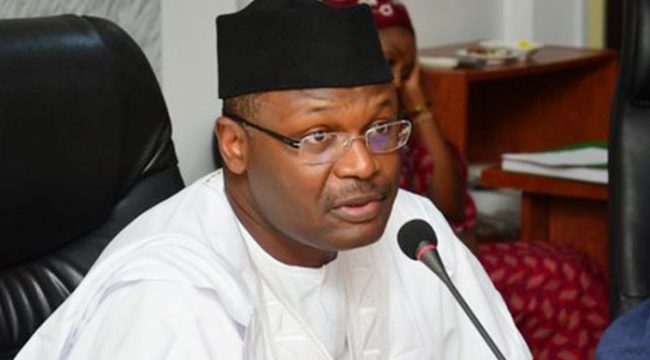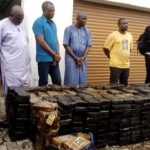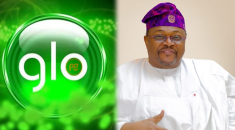

Some senior lawyers in Nigeria yesterday called on the Independent National Electoral Commission (INEC) to punish any political party in the country which refused to submit its yearly audited financial report for vetting and publication.
The lawyers, who included Dr Olisa Agbakoba, Norrison Quakers, Seyi Sowemimo and Victor Opara, all Senior Advocates of Nigeria (SANs), insisted that INEC had failed to employ statutory instruments at its disposal to compel compliance by the registered political parties.
According to them, INEC is not independent and is, in fact, afraid of powers that be, hence it’s turning a blind eye to the breaches of the Electoral Act 2022 by political parties.
Read Also: Man Kills Friend For Refusing To Buy Him Beer
Political parties are expected by law to submit three financial reports to INEC – the election contributions report, election expenses report, and annual report.
But investigation revealed that the last time the Commission published audited accounts of political parties was in 2016; since then, the electoral body has not performed this duty as required by Section 225(2) of the 1999 Constitution (as amended) and Section 86 of the Electoral Act since 2017.
Section 225(2) of the 1999 Constitution (as amended) prescribes that: “Every political party shall submit to INEC a detailed annual statement and analysis of its sources of funds and other assets together with a similar statement of its expenditure in such form as the commission may require,” while Section 86(1) mandates every political party to submit to INEC “a detailed annual statement of assets and liabilities and analysis of its sources of funds and other assets, together with a statement of its expenditure, including a hard and soft copy of its list of members or in such a form as the commission may require.”
Subsection (3) prescribes access for the electoral body to “examine the records and audited accounts kept by the political party,” while subsection (4) provides that INEC “shall publish the report on such examinations and audit in two national newspapers and the commission’s website within 30 days of receipt of the results.”
On sanctions, the law provides in Section 89(4) that “a political party which contravenes subsection (3) commits an offence and is liable on conviction to a maximum fine of N1,000,000 and in the case of failure to submit an accurate audited return within the stipulated period, the court may impose a maximum penalty of N200,000.00 per day on any party for the period after the return was due until it is submitted to the Commission.”
Despite these clear statutory instruments, INEC has not punished political parties who violated the laws.
Reacting to the seemingly helplessness of the Commission, a former president of the Nigerian Bar Association (NBA), Dr Olisa Agbakoba, said the situation would continue until some of the functions of the electoral body are taken away.
According to Agbakoba, INEC is burdened with too much work and it does not have enough capacity to effectively monitor political parties, which is responsible for the crises resulting from the primaries and other activities of the political class.
He said, “This is exactly why the Justice Muhammadu Lawal Uwais’ Electoral Reform Panel of 2007, which I was a member of, recommended the establishment of a Political Parties Regulatory Authority to oversee the activities of political parties in the country.
“This body was to deal with all the laws and regulations set out in the 1999 Constitution and the Electoral Act to ensure that they were enforced. We all knew what happened to the recommendations, they were never enforced.
“So, it is not INEC’s fault, their hands are just too full to getting around to ensuring credible elections and still performing the duty of monitoring parties and prosecuting electoral offenders. So, I recommend that that law should be passed to free INEC from being involved in the crisis of political parties,” he maintained.
On his part, the secretary of the Body of Senior Advocates of Nigeria, Sowemimo (SAN) blamed INEC for the development, stating that as long as the Commission continues to let the political parties get away with the violations, they would not obey the law.
He said, “The ball is in INEC’s court and they should invoke their disciplinary powers by sanctioning the political parties to whip them into line.
“The fact that they have not taken any action suggests that they are afraid of the powers that be and they are not courageous enough to perform their duties,” he said.
Another senior lawyer, Norrison Quakers (SAN) agreed with Sowemimo, that the problem is not the law but the reluctance of INEC to enforce the law without any other considerations.
He said, “Laws cannot work in isolation but it takes the willpower of those that are in charge to implement and enforce it to the benefit of the larger society.
“If the laws are not working, it is a recipe for anarchy; so to me, INEC is not helpless and Nigerians need to step in and use the judiciary to compel the Commission to perform its duties.
“I believe a Nigerian voter can go to court and obtain an order of mandamus to compel INEC to do the needful,” he said.
Another Lagos-based lawyer, Opara (SAN) stressed that INEC must stand up and enforce the law to ensure that political parties are not using illicit funds for their campaigns.
He, however, expressed the belief that the parties have not kept proper books and that is why they are afraid to expose them to public scrutiny.



















